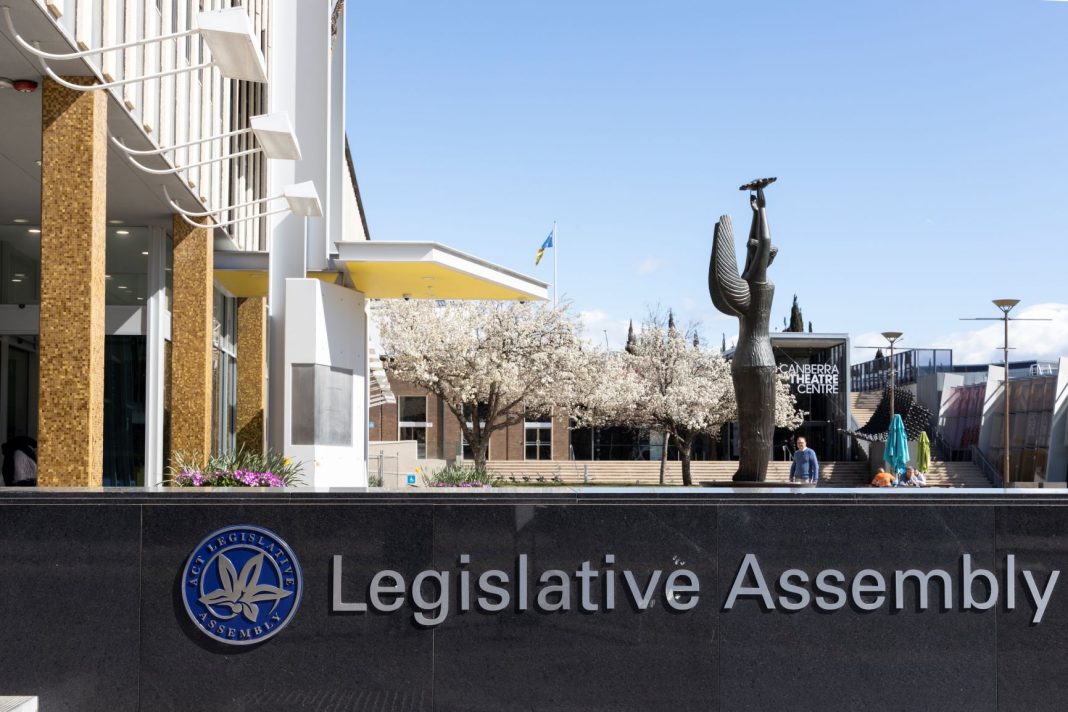The ACT could soon become the first Australian jurisdiction to raise the minimum age of criminal responsibility (MACR) from 10 to 14 years – but the capital’s lawyers and community sector are concerned that children under 14 would still be held responsible for four exceptionally serious offences.
Tomorrow, Attorney-General Shane Rattenbury will introduce the Justice (Age of Criminal Responsibility) Legislation Amendment Bill into the Legislative Assembly, which (if it passes) will raise the MACR to 12 this year, and to 14 years by July 2025.
“This is a significant reform to justice in the ACT that recognises the evidence around young people who engage in anti-social behaviours,” Mr Rattenbury said.
“In the ACT, we will seek to address the factors that cause young people to offend – like trauma, abuse, neglect, or unmet health needs – and to help young people rather than criminalise them.
“Addressing the underlying needs of this cohort will reduce recidivism and support the wellbeing of young people in the community.”
But murder, intentionally inflicting grievous bodily harm, sexual assault in the first degree, and acts of indecency in the first degree would maintain a minimum age of criminal responsibility of 12 years when the age is further raised to 14.
“The Bill recognises and maintains the rights of victims of harmful behaviour by protecting victims’ interests and providing for victim participation and support in relation to any harm caused by children and young people aged 10 to 13 years,” Mr Rattenbury said.
While the ACT Law Society and the ACT Council of Social Service (ACTCOSS) commend the government’s decision to raise the age of criminal responsibility, both object to the exceptions for serious offences.
“Putting children in prison causes life-long harm,” Farzana Choudhury, the Law Society’s president, said. “It has extensive negative social impacts, especially by driving up recidivism rates. The damage hits our Aboriginal and Torres Strait Islander communities particularly hard, given the disproportionate representation of Aboriginal and Torres Strait people in our local prison system.”
Nor, Ms Choudhury states, do the proposed changes go far enough to bring the ACT into line with UN standards. In Australia, the MACR is 10 – one of the lowest in the first world. In 2019, the United Nations called on Australia to raise the MACR to at least 14 – concerned that Indigenous children were overrepresented in the justice system.
Both the ACT Law Society and ACTCOSS argue that 12- and -13-year-olds do not have the cognitive capacity to be held criminally responsible, and that exceptions undermine the purpose of the reforms.
“If we agree that these children should not be held responsible for something like theft, why would we take a punitive approach for other crimes?” asked Dr Gemma Killen, ACTCOSS’s interim CEO.
ACTCOSS stated last year that it wanted no exceptions that allowed 12- and 13-year-old children to be charged with crimes, and Dr Killen said she was “disappointed” the minimum age of 12 had been retained for some crimes.
“As far as we can see, this is not something the community has asked for. The responses to the ACT Government’s discussion paper on the minimum age of criminal responsibility did not show support for the use of exceptions for some crimes. The community wants us to take care of children – not entrench them in a lifetime of interaction with the justice system. We have the opportunity to be a nation-leader here – and to show the rest of Australia that children belong with their families, and at school, not in prison.”
“We should be supporting our children in their families, communities, and cultures, not forcing them into the criminal justice system that will harm them for life,” Ms Choudhury said.
A Therapeutic Correction Order, a new community-based intensive therapeutic sentence, will provide wraparound services for all young offenders under 18 convicted of criminal offences to ensure they receive assistance and reduce the likelihood of reoffending.
The ACT Government will commit $2 million over four years to establish the alternative service system, Rachel Stephen-Smith, Minister for Families and Community Services, said.
The Bill follows two years of community consultation and publication of papers, since the ACT Government announced in 2021 that it would draft legislation to raise the MACR.
- ACT to raise minimum age of criminal responsibility (3 November 2022)
- Canberra supports raising minimum age of criminal responsibility, government says (5 November 2021)
- ACT to raise minimum age of criminal responsibility (23 June 2021)
- Why raise the minimum age of criminal responsibility? (23 June 2021)



